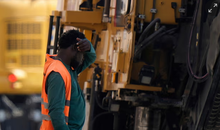
 Flash News
Flash News
"Arsonist" arrested for repeatedly setting fires in Vlora (NAME)
Three cars collide in Tirana, one of them catches fire
He abused his minor daughter, this is a 36-year-old man in custody in Fier
Serious in Fier! Father sexually abuses his minor daughter
The phone found in prison is expected to be disassembled, Laert Haxhiu risks isolation in '41 biss'
Vučić accuses the West of "being silent about the events in Kosovo"
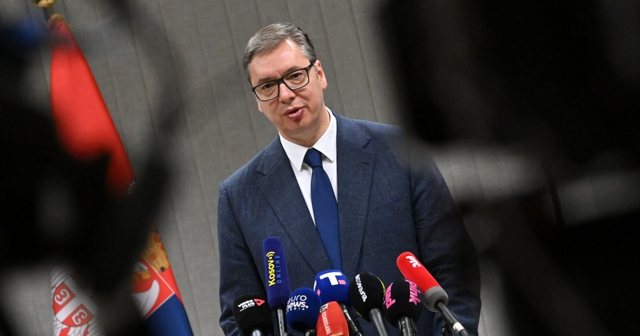
Serbian President Aleksandar Vučić has accused the West of being "silent" regarding events in Kosovo, referring to the closure of institutions and facilities in northern Kosovo that operate under the Serbian system.
In an interview with Serbian public television, Vučić said that recent developments and incidents in Kosovo show that these are "organized actions" by Pristina, with the help of the "resounding silence" of the international community, led by Western states.
"They are keeping quiet because they hope that in silence, the Serbian people will be expelled from their centuries-old lands in Kosovo. At the same time, this is causing anxiety among some political actors in the West and the East, which is an additional nervousness for [Kosovo's acting Prime Minister, Albin] Kurti, and this, in a political sense, we should exploit," he said.
Kosovo began closing Serbian institutions in early 2024. Initially, the temporary municipal bodies, the Postal Savings Bank, the Post of Serbia, the Pension and Health Insurance Fund, social work centers, public enterprises, and similar institutions were closed.
The closure of other facilities that operate according to the Serbian system has then continued, including sports halls, city libraries, the city museum in North Mitrovica, and others.
Kosovo considers these institutions illegal and parallel.
The international community has consistently criticized Kosovo for uncoordinated actions in northern Kosovo, regarding the closure of institutions.
The latest reaction on this issue came just hours before Vučić's interview, from the United Kingdom, which expressed concern about the uncoordinated nature of the closure of institutions in northern Kosovo, which, according to London, provide vital services to the Serbian community and other non-majority communities living in northern Kosovo.
During the interview, Vučić stated that Serbia is trying to counter the "fierce attack of Albanians", who, according to him, with the support of some Western powers and Turkey, are trying to "find as many countries as they can to recognize Kosovo's independence".
"It is extremely difficult to refute this. We do not have as much money as they do, or weapons and resources to send people around the world to buy recognition," Vucic said, without providing evidence for this claim.
Recently, Kenya and Sudan have recognized Kosovo's independence, bringing the country's current recognition to 116 countries, according to data from the Kosovo Ministry of Foreign Affairs and Diaspora. However, in recent years, Belgrade has claimed that several countries have withdrawn their recognition of Kosovo.
During the interview, Vučić also spoke about an infrastructure project in Kosovo. He said that yesterday he had talked with the American construction company, Bechtel, which builds roads in Serbia, about the possibility of extending the Kralevë-Novi Pazar road. He said that he had insisted that the remaining 13.1 kilometers to Jarinjë – the border point between Kosovo and Serbia – be built as well.
"Then I said: if you can build the road to North Mitrovica, we are willing to pay for it and it would be a success for us and an important road to peace, something great for the Serbian people who are in those four municipalities [in northern Kosovo]. But, I mean it would be an important road to peace with the Albanians, who could also use it since they have built their roads to South Mitrovica, and if all these roads were connected it would be good news," Vučić said.
Serbia had previously mentioned the idea of building a road that would connect Jarinje with South Mitrovica. But, in 2021, the Kosovo Government, led by Albin Kurti, had said that Serbia could not build such a road, because it is on Kosovo's territory and is Kosovo's responsibility. This idea, at the time, was considered unacceptable and inappropriate by Kosovo./ REL
Latest news

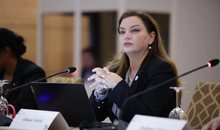

Meet Kozeta Miliku, named one of the top five scientists in Canada
2025-07-01 16:32:12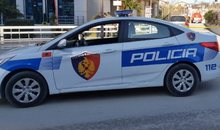
"Arsonist" arrested for repeatedly setting fires in Vlora (NAME)
2025-07-01 16:29:45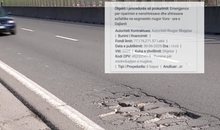
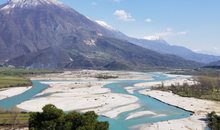
The ecological integrity of the Vjosa River risks remaining on paper
2025-07-01 16:09:40
Heat Headache/ Causes, Symptoms and Measures You Should Take
2025-07-01 16:01:13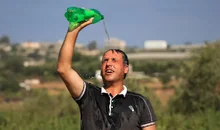
UN: The world must learn to live with heat waves
2025-07-01 15:54:50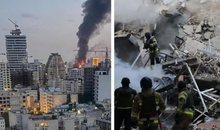
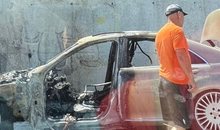
Three cars collide in Tirana, one of them catches fire
2025-07-01 15:38:16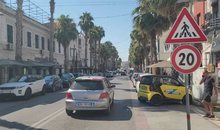
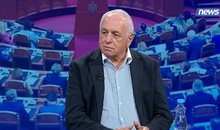
Shehu: Whoever doesn't want Berisha, doesn't want the opposition 'war'!
2025-07-01 15:19:20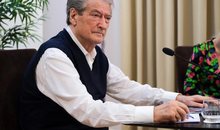
Berisha requests the OSCE Assembly: Help my nation vote freely
2025-07-01 15:11:46
Be careful with medications: Some of them can harm your sex life
2025-07-01 15:00:32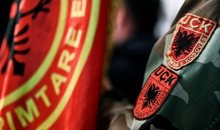
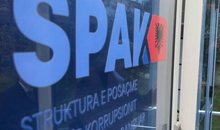
'Golden Bullet'/ Lawyers leave the courtroom, Altin Ndoc's trial postponed again
2025-07-01 14:44:52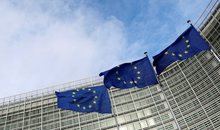
EU changes leadership, Kosovo in a number of places
2025-07-01 14:40:01
Should we drink a lot of water? Experts are surprised: You risk hyponatremia
2025-07-01 14:30:20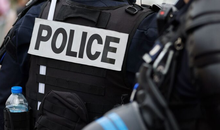
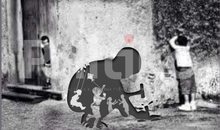
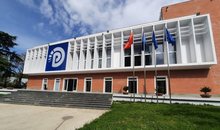
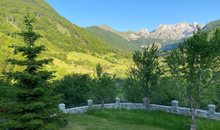
Lëpusha beyond Rama's postcards: A village that is being silently abandoned
2025-07-01 13:41:56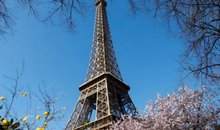
Scorching temperatures in France close the Eiffel Tower
2025-07-01 13:29:35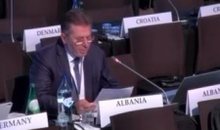
Media: China, Iran and North Korea, a threat to European security
2025-07-01 13:20:12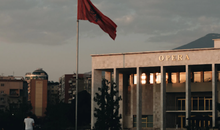
Albania drops in global index: Less calm, more insecure
2025-07-01 13:09:35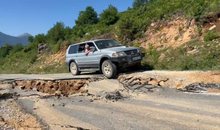
Road collapses, 5 villages in Martanesh risk being isolated
2025-07-01 13:03:04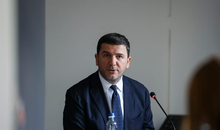
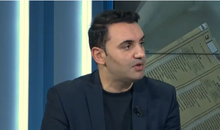
Këlliçi: Opposition action to be decided in September
2025-07-01 12:48:49
Four tips for coping with the heat wave
2025-07-01 12:38:53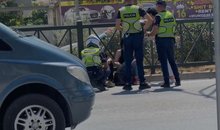
Car hits pedestrian on Transbalkan road
2025-07-01 12:27:09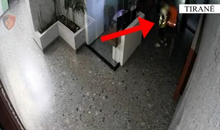
Authors of 9 robberies, Erjon Sopoti and Abdullah Zyberi arrested
2025-07-01 12:15:56
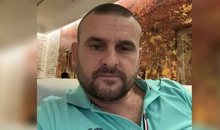
He abused his minor daughter, this is a 36-year-old man in custody in Fier
2025-07-01 11:50:34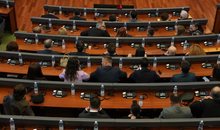
The constitution of the Kosovo Assembly fails for the 40th time
2025-07-01 11:40:08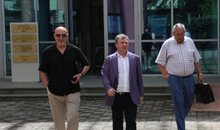

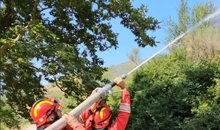

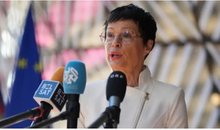
EU confirms support for the Western Balkans
2025-07-01 10:50:45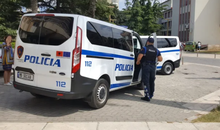
Serious in Fier! Father sexually abuses his minor daughter
2025-07-01 10:32:33
One year since the passing of the colossus of Albanian literature, Ismail Kadare
2025-07-01 10:25:26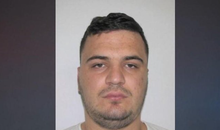

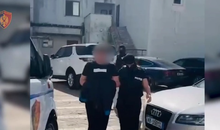
They supplied the 'spaçators' with drugs, two young men are arrested in Tirana
2025-07-01 09:54:09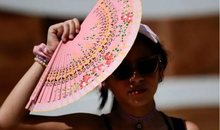
Europe is "scorching", how dangerous are high temperatures?
2025-07-01 09:48:56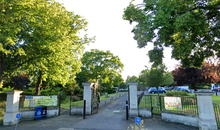
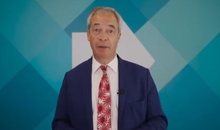
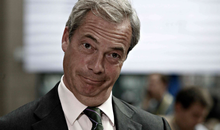
Nigel Farage in Albania: but why?
2025-07-01 09:13:12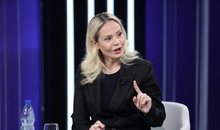
Xama: The "Partizani" dossier is quite weak and without facts!
2025-07-01 09:04:47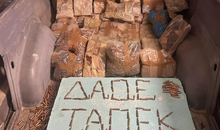

Foreign exchange, the rate at which foreign currencies are sold and bought
2025-07-01 08:35:39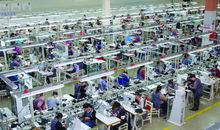
Fabricators again warn of factory closures and job cuts
2025-07-01 08:21:30
Horoscope, what do the stars have in store for you today?
2025-07-01 08:08:59
Scorching hot, temperatures reaching 40°C
2025-07-01 07:57:12
Morning Post/ In 2 lines: What mattered yesterday in Albania
2025-07-01 07:42:59
Recount after May 11, Braho: I had no expectations for massive vote trafficking
2025-06-30 22:54:18

Second hearing on the protected areas law, Zhupa: Unconstitutional and dangerous
2025-06-30 22:18:46



Israel-Iran conflict, Bushati: Albanians should be concerned
2025-06-30 21:32:42

Fuga: Journalism in Albania today in severe crisis
2025-06-30 21:07:11
"There is no room for panic"/ Moore: Serbia does not dare to attack Kosovo!
2025-06-30 20:49:53

Temperatures above 40 degrees, France closes nuclear plants and schools
2025-06-30 20:28:42
Lavrov: NATO is risking self-destruction with new military budget
2025-06-30 20:13:54
Turkey against the "Bektashi state" in Albania: Give up this idea!
2025-06-30 20:03:24

Accused of sexual abuse, producer Diddy awaits court decision
2025-06-30 19:40:44



Kurti and Vučić "face off" tomorrow in Skopje
2025-06-30 18:44:12
Tourism: new season, old problems
2025-06-30 18:27:23


Construction worker dies after falling from scaffolding in Berat
2025-06-30 17:51:44




Almost free housing: East Germany against depopulation
2025-06-30 16:43:06

Hamas says nearly 60 people killed in Gaza as Trump calls for ceasefire
2025-06-30 16:14:15
Drownings on beaches/ Expert Softa: Negligence and incompetence by institutions!
2025-06-30 16:00:03


European ports are overloaded due to Trump tariffs
2025-06-30 15:30:44
The prosecution sends two Korça Municipality officials to trial
2025-06-30 15:19:54

Lezha/ Police impose 3165 administrative measures, handcuff 19 drivers
2025-06-30 14:55:04
Young people leave Albania in search of a more sustainable future
2025-06-30 14:47:52
Record-breaking summer, health threats and preventive measures
2025-06-30 14:36:19


Constitution of the Parliament, Osmani invites political leaders to a meeting
2025-06-30 14:07:54

